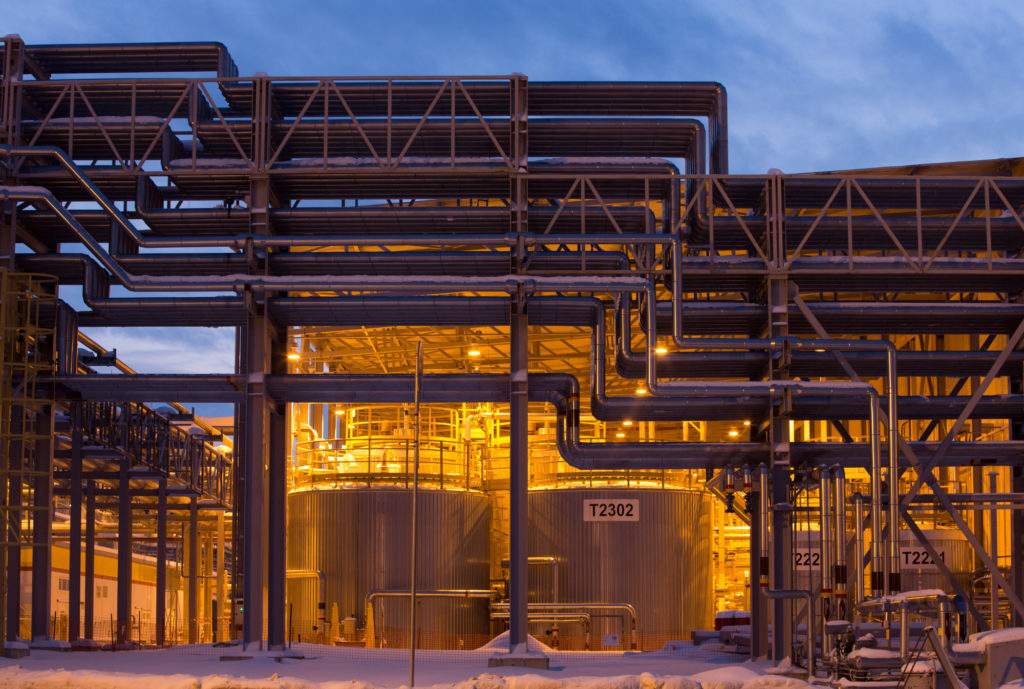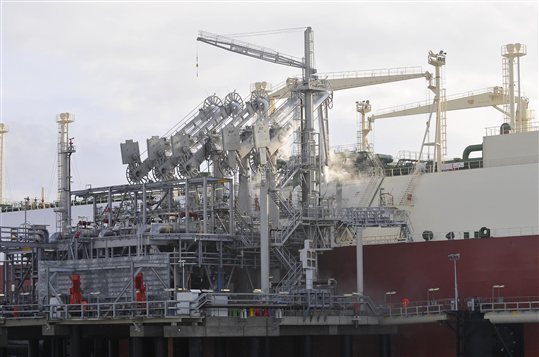
Russia, embroiled in a deepening rift with the U.K. over the poisoning of a former spy, moved to remind Europe that it’s the most flexible and reliable source of energy needed by the continent.
Energy Minister Alexander Novak urged policy makers not to allow the diplomatic dispute to seep into the commercial relationship between his country and Europe, which last month consumed a record amount of Russian natural gas.
Russia supplies by pipeline about a third of the gas consumed in Europe and sent cargoes of liquefied natural gas to Britain at critical moments this year. It was able to step up supplies during cold snaps in the past few weeks. U.K. Prime Minister Theresa May has said she wants to find alternatives for Russian gas.
“Should the statements become a reality regarding alternative sources for gas instead of Russia, that will damage first and foremost the consumers,” Novak said in a Bloomberg television interview in Moscow. “Should any company or country opt for another supplier, I don’t think that condition will be that preferential and beneficial for them.”
Russia has been boosting fuel supplies to unprecedented levels since 2016. Europe’s demand is increasing, and domestic production from big suppliers like the U.K. and the Netherlands is dropping. That’s left politicians concerned about the leverage Russia is gaining by stepping up its supplies to the region.
Tensions between Moscow and London mounted after British authorities said a former Russian spy was poisoned in the English city of Salisbury by what was most likely a nerve agent manufactured in Russia. That led to the biggest expulsion of diplomats since the Cold War, and the U.K. is asking its allies in the West to stand up to Russia. The government in Moscow denies all the accusations.
In the U.S., a group of 39 senators asked President Donald Trump to block the Nord Stream 2 pipeline, which Russia plans to start next year to bring Siberian gas into northern Europe. That line would run parallel to an existing pipeline underneath the Baltic Sea.
The U.S. president signed a law last year giving him the right to impose sanctions against investors or contractors participating in construction of Russia’s export pipelines. In Germany, Chancellor Angela Merkel’s government outlined plans to expand LNG infrastructure to reduce the nation’s dependence on supplies arriving by pipeline from Russia and Norway.
All those moves followed the emergence of another friction point along the main transit route that brings Russian gas into Europe. Moscow-based Gazprom PJSC is working on ways to circumvent Ukraine as a conduit for its gas after a long dispute with the nation over payments for supplies and transit rates.
Novak brushed aside suggestions that Gazprom’s moves in Ukraine hurt Russia’s reputation as a reliable partner.
“We can guarantee the compliance with our commitments,” Novak said. “We have been doing this for 50 years already and we have necessary resources, capabilities and opportunities to ensure the long-term and reliable supply of our gas to Europe.” Ukraine still has an opportunity to remain Russia’s partner in gas deliveries if it offers “competitive” conditions, he said.
Recommended for you
